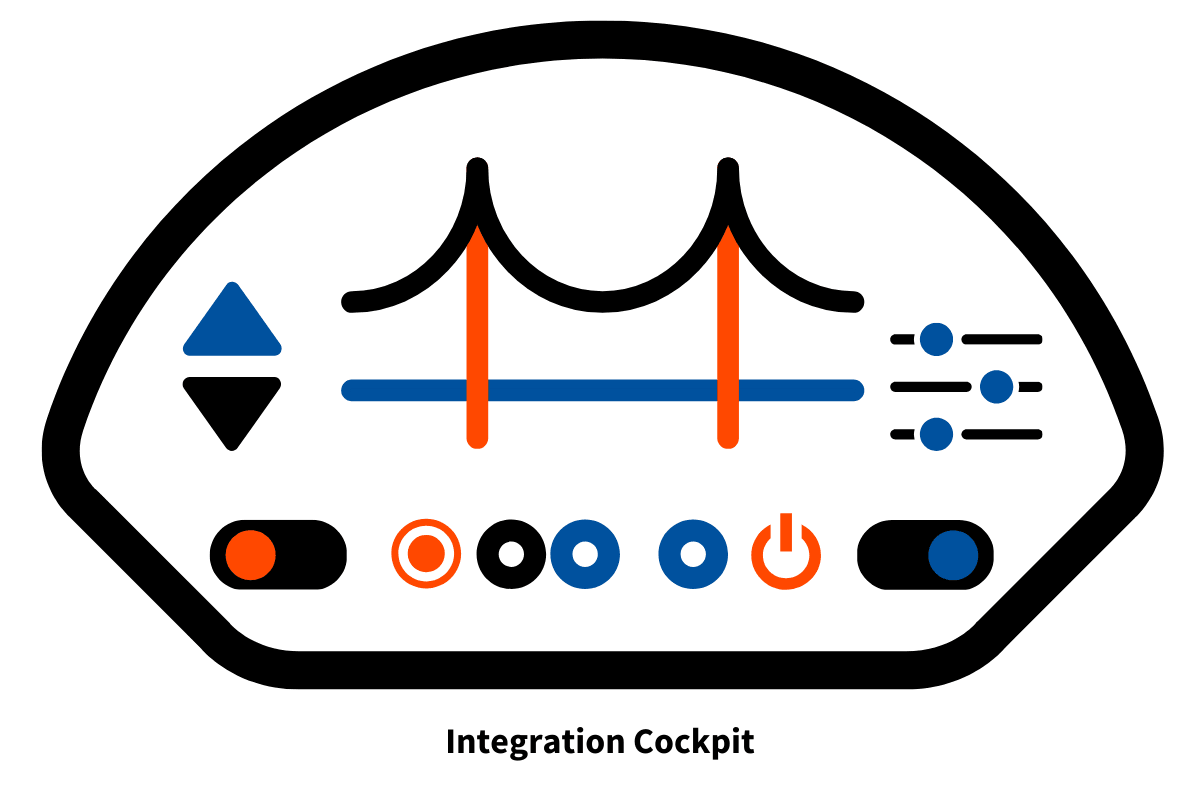
WHINT® solutions
Integration Excellence & Interface Mangement
Enterprise-grade Interface Management
for your Integration Layer and your SAP Interface Landscape
Inventory & Documentation
Interfaces & Mappings
Centralize your interface knowledge into a holistic inventory to support projects and plan for transformations and generate technical documentations.
Quality & Reporting
KPIs & Statistics
Know your integration landscape and improve interface quality by supporting the interface development lifecycle during plan, build and run.
Monitoring
Design-time & Runtime Checks
Automate periodic checks of your integration landscape by analyzing channels, messages, queues, certificates and traffic anomalies

The Integration Cockpit is a SaaS solution which helps enterprise integration architects and team leaders to master the complexity of their integration landscape.It is a central control center for all interfaces which enables faster (data-driven) decisions to increase quality and thus reduce business disruption and increase efficiency.
Features
- Get transparency for your integration content with interface overview & reporting in a central inventory
- Automate your interface documentation with scheduled PDF creations
- Improve the quality of your interfaces through reporting insights and quality checks
- Control your interfaces with smart monitoring & alerting
- Achieve Integration Excellence with better interface quality and control of your integration landscape
automated interface inventory, documentation, checks, reporting and alerting

- Inventory
- End-To-End Integrations
- EAM-Integration
(LeanIX, LUY, Hopex, Bee360) - Jira & Confluence-Integration
reading integration data from
- SAP Integration Suite
- SAP Process Orchestration
- SAP ABAP Backends
- Microsoft Azure Integration Services
- Mulesoft Anypoint
- Solace (soon)
additional adapters to complete your SAP middleware:
Enable A2A, B2B, B2G integration with additional protocols for SAP PI/PO/Cloud Integration
Benefits
Save Time
be more productive with automated catalogs and documentation of your interfaces to support tranformations
Improve Quality
with better insights about your messaging landscape through reporting, quality & landscape checks
Less Downtimes
through smart E-Mail alerting for the right receivers, downtimes can be reduced or even avoided
whitepaper.id helps companies to achieve integration excellence
running SAP´s integration solutions.
Copyright 2023 by Whitepaper InterfaceDesign
WHINT® is a registered trademark of whitepaper.id GmbH









